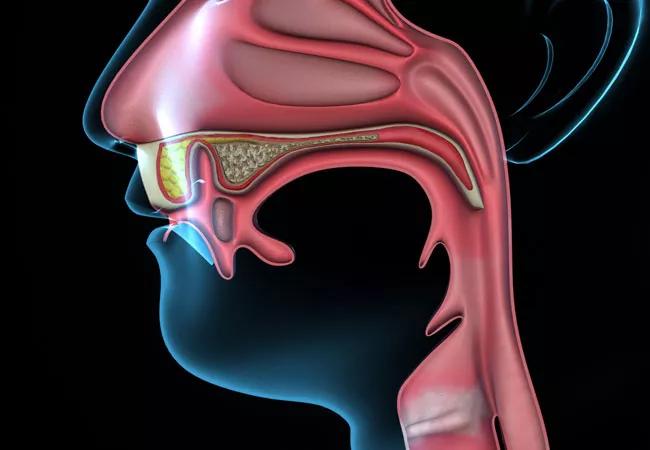New system better predicts patient outcomes

On January 1, 2018, the American Joint Committee on Cancer (AJCC) released the 8th edition Cancer Staging Manual for all forms of cancer. Compared to the 7th edition, “the major difference is that more patients are upstaged,” says Shlomo Koyfman, MD, a head, neck and skin cancer radiation oncologist at Cleveland Clinic.
Advertisement
Cleveland Clinic is a non-profit academic medical center. Advertising on our site helps support our mission. We do not endorse non-Cleveland Clinic products or services. Policy
Generally, with the new cancer staging system, patients with cancer previously classified as stage I are now stage II; those previously classified as stage II are now stage III, and so on. This significant change is particularly poignant for patients with oral cavity cancer.
“We’re seeing a lot more highly curable oral pharynx cancer, but the survival rates for oral cavity cancer are not getting better,” Dr. Koyfman says. “It’s a much more aggressive cancer and harder to cure.”
With the new cancer staging system, patients with oral cavity cancer with extra-capillary extension, for example, are now classified in a more advanced stage. Similarly, under the new system, patients with deeper primary oral cavity tumors are staged at a more advanced level.
“How deep a tumor grows into tissue is more important than how large it is,” Dr. Koyfman says. “Even if it’s reasonably small, if it dives deep, it now carries with it a more advanced prognosis.”
These important staging changes signal to oncologists to treat patients with oral cavity cancer more aggressively to potentially improve prognosis.
To test the validity of the new AJCC 8th edition cancer staging system, Cleveland Clinic, led by Dr. Koyfman, conducted a multi-institutional study — known as the Multi-institutional Oral Cavity Cancer Collective (MOCCC) — with leading cancer centers around the world, including Moffitt Cancer Center, Memorial Sloan Kettering Cancer Center, Henry Ford Cancer Institute and University of Louisville James Graham Brown Cancer Center. Results of the study were presented at the 2018 ASTRO Annual Meeting in San Antonio.
Advertisement
“We put our data together to study almost 1,400 patients from 2005 to 2015,” Dr. Koyfman says. The study applied the 8th edition of the AJCC cancer staging system to previously treated patients with oral cavity cancer and assessed their outcomes. Compared with the previous system, “we found that the new staging system better predicted and is more consistent with improved outcomes in some patients,” Dr. Koyfman says.
The new staging system is a step in the right direction, but more work needs to be done. Staging helps categorize patients with cancer appropriately to determine treatment protocol. But it can also be used to improve study methods.
“We need to use this new staging system to guide the new generation of clinical trials,” Dr. Koyfman says. “If patients with similar biologies are classified more appropriately, we might be able to figure out how to treat them better and improve outcomes.”
Similarly, traditional cancer staging relies on anatomic indicators, such as tumor size and depth, number of affected lymph nodes and the presence of extra-capillary extension. To improve prognosis for patients with oral cavity and other types of cancer, “We need to start incorporating biology and genetic signatures into the staging process, which is the next frontier and how we’re trying to move forward at Cleveland Clinic,” Dr. Koyfman says.
Advertisement
Advertisement

Radiation therapy helped shrink hand nodules and improve functionality

Standard of care is linked to better outcomes, but disease recurrence and other risk factors often drive alternative approaches

Phase 1 study demonstrates immune response in three quarters of patients with triple-negative breast cancer

Multidisciplinary teams bring pathological and clinical expertise

Genetic variants exist irrespective of family history or other contributing factors

Study shows significantly reduced risk of mortality and disease complications in patients receiving GLP-1 agonists

Structured interventions enhance sleep, safety and caregiver resiliency in high-acuity units

Addressing rare disease and challenging treatment course in an active young patient